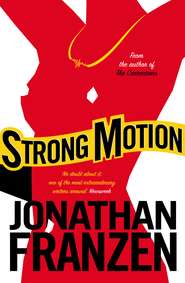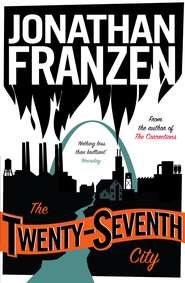По всем вопросам обращайтесь на: info@litportal.ru
(©) 2003-2024.
✖
The Laughing Policeman
Автор
Год написания книги
2019
Настройки чтения
Размер шрифта
Высота строк
Поля
‘No, but all the same, it's so stupid it makes you ashamed.’
‘Yes,’ Martin Beck agreed.
He had put on his hat and coat and was about to go. Kollberg got up quickly.
‘I'll come with you,’ he said.
‘Whatever for?’
‘Oh, to stroll around a little.’
‘In this weather?’
‘I like rain,’ Kollberg said, climbing into his dark-blue poplin coat.
‘Isn't it enough for me to have a cold?’ Martin Beck said.
Martin Beck and Kollberg were policemen. They belonged to the homicide squad. For the moment they had nothing special to do and could, with relatively clear consciences, consider themselves free.
Downtown no policemen were to be seen in the streets. The old lady outside the central station waited in vain for a beat officer to come up to her, salute, and smilingly help her across the street. A person who had just smashed the glass of a showcase with a brick had no need to worry that the rising and falling wail from a patrol car would suddenly interrupt his doings.
The police were busy.
A week earlier the police commissioner had said in a public statement that many of the regular duties of the police would have to be neglected because they were obliged to protect the American ambassador against letters and other things from people who disliked Lyndon Johnson and the war in Vietnam.
Detective Inspector Lennart Kollberg didn't like Lyndon Johnson and the war in Vietnam either, but he did like strolling about the city when it was raining.
At eleven o'clock in the evening it was still raining and the demonstration could be regarded as broken up.
At the same time eight murders and one attempted murder were committed in Stockholm.
2 (#u53bee9f0-1b33-559b-a9f6-39709df89c55)
Rain, he thought, looking out of the window dejectedly. November darkness and rain, cold and pelting. A forerunner of the approaching winter. Soon it would start to snow.
Nothing in town was very attractive just now, especially not this street with its bare trees and large, shabby blocks of flats. A bleak esplanade, misdirected and wrongly planned from the outset. It led nowhere in particular and never had, it was just there, a dreary reminder of some grandiose city plan, begun long ago but never finished. There were no well-lit shop windows and no people on the pavements. Only big, leafless trees and street lamps, whose cold white light was reflected by puddles and wet car roofs.
He had trudged about so long in the rain that his hair and the legs of his trousers were sopping wet, and now he felt the moisture along his shins and right down his neck to the shoulder blades, cold and trickling.
He undid the two top buttons of his raincoat, stuck his right hand inside his jacket and fingered the butt of the pistol. It, too, felt cold and clammy.
At the touch, an involuntary shudder passed through the man in the dark-blue poplin raincoat and he tried to think of something else. For instance of the hotel balcony at Andraitz, where he had spent his holiday five months earlier. Of the heavy, motionless heat and of the bright sunshine over the quayside and the fishing boats and of the limitless, deep-blue sky above the mountain ridge on the other side of the bay.
Then he thought that it was probably raining there too at this time of year and that there was no central heating in the houses, only open fireplaces.
And that he was no longer in the same street as before and would soon be forced out into the rain again.
He heard someone behind him on the stairs and knew that it was the person who had got on outside Ahléns department store on Klarabergsgatan in the centre of the city twelve stops before.
Rain, he thought. I don't like it. In fact I hate it. I wonder when I'll be promoted. What am I doing here anyway and why aren't I at home in bed with …
And that was the last he thought.
The bus was a red doubledecker with cream-coloured top and grey roof. It was a Leyland Atlantean model, built in England, but constructed for the Swedish right-hand traffic, introduced two months before. On this particular evening it was plying on route 47 in Stockholm, between Bellmansro at Djurgården and Karlberg, and vice versa. Now it was heading north-west and approaching the terminus on Norra Stationsgatan, situated only a few yards from the city limits between Stockholm and Solna.
Solna is a suburb of Stockholm and functions as an independent municipal administrative unit, even if the boundary between the two cities can only be seen as a dotted line on the map.
It was big, this red bus; over 36 feet long and nearly 15 feet high. It weighed more than 15 tons. The headlights were on and it looked warm and cosy with its misty windows as it droned along deserted Karlbergsvägen between the lines of leafless trees. Then it turned right into Norrbackagatan and the sound of the engine was fainter on the long slope down to Norra Stationsgatan. The rain beat against the roof and windows, and the wheels flung up hissing cascades of water as it glided downward, heavily and implacably.
The hill ended where the street did. The bus was to turn at an angle of 30 degrees, on to Norra Stationsgatan, and then it had only some 300 yards left to the end of the line.
The only person to observe the vehicle at this moment was a man who stood flattened against a house wall over 150 yards farther up Norrbackagatan. He was a burglar who was about to smash a window. He noticed the bus because he wanted it out of the way and had waited for it to pass.
He saw it slow down at the corner and begin to turn left with its side lights blinking. Then it was out of sight. The rain pelted down harder than ever. The man raised his hand and smashed the pane.
What he did not see was that the turn was never completed.
The red doubledecker bus seemed to stop for a moment in the middle of the turn. Then it drove straight across the street, climbed the sidewalk and burrowed halfway through the wire fence separating Norra Stationsgatan from the desolate freight depot on the other side.
Then it pulled up.
The engine died but the headlights were still on, and so was the lighting inside.
The misty windows went on gleaming cosily in the dark and cold.
And the rain lashed against the metal roof.
The time was three minutes past eleven on the evening of 13 November, 1967.
In Stockholm.
3 (#u53bee9f0-1b33-559b-a9f6-39709df89c55)
Kristiansson and Kvant were radio patrol policemen in Solna.
During their not-very-eventful careers they had picked up thousands of drunks and dozens of thieves, and once they had presumably saved the life of a six-year-old girl by seizing a notorious sex maniac who was just about to assault and murder her. This had happened less than five months ago, and although it was a fluke it constituted a feat which they intended to live on for a long time.
On this particular evening they had not picked up anything at all, apart from a glass of beer each; as this was perhaps against the rules, it had better be ignored.
Just before ten thirty they got a call on the radio and drove to an address at Kapellgatan in the suburb of Huvudsta, where someone had found a lifeless figure lying on the front steps. It took them only three minutes to drive there.
Sure enough, sprawling in front of the street door lay a human being in frayed black trousers, down-at-heel shoes and a shabby pepper-and-salt overcoat. In the lit hallway inside stood an elderly woman in slippers and dressing gown. She was evidently the one who had complained. She gesticulated at them through the glass door, then opened it a few inches, stuck her arm through the crack and pointed demandingly to the motionless form.
‘A-ha, and what's all this?’ Kristiansson said.
Kvant bent down and sniffed.
‘Out cold,’ he said with deeply-felt distaste. ‘Give us a hand, Kalle.’
















